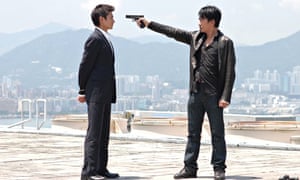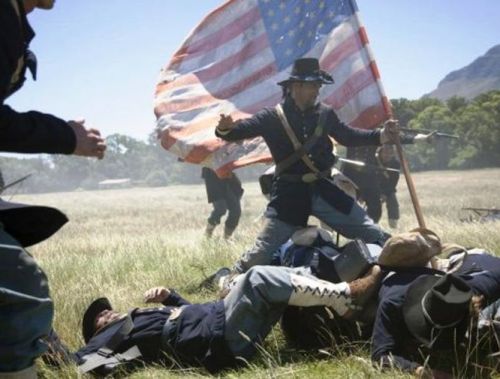Profile: Samuel Clemens
With permission and help from Mac Gregor, I have some new entries in the series on Entertainment in the universe of The Union Forever!
Samuel Clemens (1835-1912)

Samuel Langhorne Clemens, better known by his pen name Mark Twain, was an American writer, humorist, publisher and political columnist. Often credited as one of the great writers in American literature, Twain was instrumental in establishing a distinct American style of writing and storytelling, and is often heralded as the 'Father of American Literature'.
Raised in Hannibal, Mississippi, which served as the setting for some of his later novels, the early portions of his life was spent doing everything from working as a printing apprentice to piloting a riverboat down the Mississippi. Although briefly serving in the Confederate militia at the start of the Civil War, Twain was never fond of the ideas espoused by the Confederacy, and quit after only two weeks. Soon after, the call of the West proved too great for Clemens to ignore, and he set out for San Francisco to make his fortune in Nevada as the year 1861 came to a close.
Working as a miner on the Comstock Lode until 1863, Clemens soon discovered that he had no knack for mining, nor any taste for that sort of labor. To make ends meet, he wrote a series of short, humorous stories about life on the frontier under the pen name 'Mark Twain', which he would use for the rest of his life. His first major success came with the publishing of the short story 'The Celebrated Jumping Frogs of Cavaleras County', which brought him national attention. The San Francisco Chronicle, who had taken the risk and published his story, soon hired him on as a columnist where he perfected his trademark wit and relaxed writing style.
As hostilities broke out between Spain and America over Cuba, Twain was sent by the Chronicle to be their political correspondent. In Cuba, he was shocked and appalled at the state of affairs on the island. Becoming much more political after what he witnessed, Twain was a lifelong advocate against colonialism and racism, including themes of tolerance, acceptance, and equality in most of his works.
After the war, a series of poor financial decisions caused Twain to suffer under massive amounts of debt. With few options, and encouraged by those who knew him, Twain decided to write novels in order to make ends meet. His very first one, The Good Intentions of Mason Abernathy (1887), was a massive commercial and critical success, propelling him to beloved heights that none of his previous work had. Set in a dystopian world a hundred and fifty years in the future, the story revolved around a Yankee engineer transported into the future where he encounters the incompetent, bumbling, yet kind-hearted bureaucrat Mason Abernathy. Attempting to educate him on the virtues of democracy and American beliefs while attempting to correct or alter the comical ineptitude of his protegee, the engineer eventually establishes a conclave of liberty in the midst of a totalitarian society. Although equal parts comical and cautionary, the main thrust of the book is a satire upon the 'do-gooder' nature of politicians, and a love letter to the ideals of the American Dream.
After the success of Good Intentions, came more universally beloved books such as Homesteadin', Personal Recollections from the Middle Ages, and The Mysterious Letter. But undoubtedly his magnum opus is the Charles Russell Trilogy. Consisting of three books about the life of the titular character, Charles Russell, they chronicle his early life through his service in the Spanish-American War (Adventures of Charles Russell), his return from the war and his quest to start a business and family (The Maturation of Charles Russell), to his political career and his efforts to leave the world a better place than when he found it (The Legacy of Charles Russell). The three novels are universally praised and lauded as some of the greatest works of early American literature, with Robert Wilcox once remarking "Although great books had existed before, the birth of great American Literature arrived with Charles Russell."
Clemens spent most of his later years at his estate in San Francisco, spending time with his wife and his three daughters. During the San Francisco earthquake of 1906, he used a great deal of his fortune to help assist those who needed aid in recovering from the disaster. Breaking from his usual disdain for government control and assistance, he lauded the relief efforts and d federal response to the disaster. In typical Twain fashion, he commented "You'd have to move mountains to get the government to be efficient in their actions. Turns out that's exactly what happened". After several years of peace and quiet, Clemens died in 1912 due to complications from pneumonia, surrounded by family and loved ones.
In 2012, his autobiography was finally released, as Twain was adamant in his will that it not be released for a hundred years after his death so that "those vultures masquerading as reviewers, who have feasted on the carrion of my works, and savaged them greatly, will get no pleasure, no opportunity, and no income from doing the same to my legacy". Favorable reviews greeted the book, with the New York Times saying "displaying all of the wit, impudence, and soft criticism that was his hallmark, Twain proves just as adept at critiquing himself as he was with Charles Russell. A fitting bookend to the life of one of the greatest American authors of all time".
Samuel Clemens (1835-1912)

Samuel Langhorne Clemens, better known by his pen name Mark Twain, was an American writer, humorist, publisher and political columnist. Often credited as one of the great writers in American literature, Twain was instrumental in establishing a distinct American style of writing and storytelling, and is often heralded as the 'Father of American Literature'.
Raised in Hannibal, Mississippi, which served as the setting for some of his later novels, the early portions of his life was spent doing everything from working as a printing apprentice to piloting a riverboat down the Mississippi. Although briefly serving in the Confederate militia at the start of the Civil War, Twain was never fond of the ideas espoused by the Confederacy, and quit after only two weeks. Soon after, the call of the West proved too great for Clemens to ignore, and he set out for San Francisco to make his fortune in Nevada as the year 1861 came to a close.
Working as a miner on the Comstock Lode until 1863, Clemens soon discovered that he had no knack for mining, nor any taste for that sort of labor. To make ends meet, he wrote a series of short, humorous stories about life on the frontier under the pen name 'Mark Twain', which he would use for the rest of his life. His first major success came with the publishing of the short story 'The Celebrated Jumping Frogs of Cavaleras County', which brought him national attention. The San Francisco Chronicle, who had taken the risk and published his story, soon hired him on as a columnist where he perfected his trademark wit and relaxed writing style.
As hostilities broke out between Spain and America over Cuba, Twain was sent by the Chronicle to be their political correspondent. In Cuba, he was shocked and appalled at the state of affairs on the island. Becoming much more political after what he witnessed, Twain was a lifelong advocate against colonialism and racism, including themes of tolerance, acceptance, and equality in most of his works.
After the war, a series of poor financial decisions caused Twain to suffer under massive amounts of debt. With few options, and encouraged by those who knew him, Twain decided to write novels in order to make ends meet. His very first one, The Good Intentions of Mason Abernathy (1887), was a massive commercial and critical success, propelling him to beloved heights that none of his previous work had. Set in a dystopian world a hundred and fifty years in the future, the story revolved around a Yankee engineer transported into the future where he encounters the incompetent, bumbling, yet kind-hearted bureaucrat Mason Abernathy. Attempting to educate him on the virtues of democracy and American beliefs while attempting to correct or alter the comical ineptitude of his protegee, the engineer eventually establishes a conclave of liberty in the midst of a totalitarian society. Although equal parts comical and cautionary, the main thrust of the book is a satire upon the 'do-gooder' nature of politicians, and a love letter to the ideals of the American Dream.
After the success of Good Intentions, came more universally beloved books such as Homesteadin', Personal Recollections from the Middle Ages, and The Mysterious Letter. But undoubtedly his magnum opus is the Charles Russell Trilogy. Consisting of three books about the life of the titular character, Charles Russell, they chronicle his early life through his service in the Spanish-American War (Adventures of Charles Russell), his return from the war and his quest to start a business and family (The Maturation of Charles Russell), to his political career and his efforts to leave the world a better place than when he found it (The Legacy of Charles Russell). The three novels are universally praised and lauded as some of the greatest works of early American literature, with Robert Wilcox once remarking "Although great books had existed before, the birth of great American Literature arrived with Charles Russell."
Clemens spent most of his later years at his estate in San Francisco, spending time with his wife and his three daughters. During the San Francisco earthquake of 1906, he used a great deal of his fortune to help assist those who needed aid in recovering from the disaster. Breaking from his usual disdain for government control and assistance, he lauded the relief efforts and d federal response to the disaster. In typical Twain fashion, he commented "You'd have to move mountains to get the government to be efficient in their actions. Turns out that's exactly what happened". After several years of peace and quiet, Clemens died in 1912 due to complications from pneumonia, surrounded by family and loved ones.
In 2012, his autobiography was finally released, as Twain was adamant in his will that it not be released for a hundred years after his death so that "those vultures masquerading as reviewers, who have feasted on the carrion of my works, and savaged them greatly, will get no pleasure, no opportunity, and no income from doing the same to my legacy". Favorable reviews greeted the book, with the New York Times saying "displaying all of the wit, impudence, and soft criticism that was his hallmark, Twain proves just as adept at critiquing himself as he was with Charles Russell. A fitting bookend to the life of one of the greatest American authors of all time".

